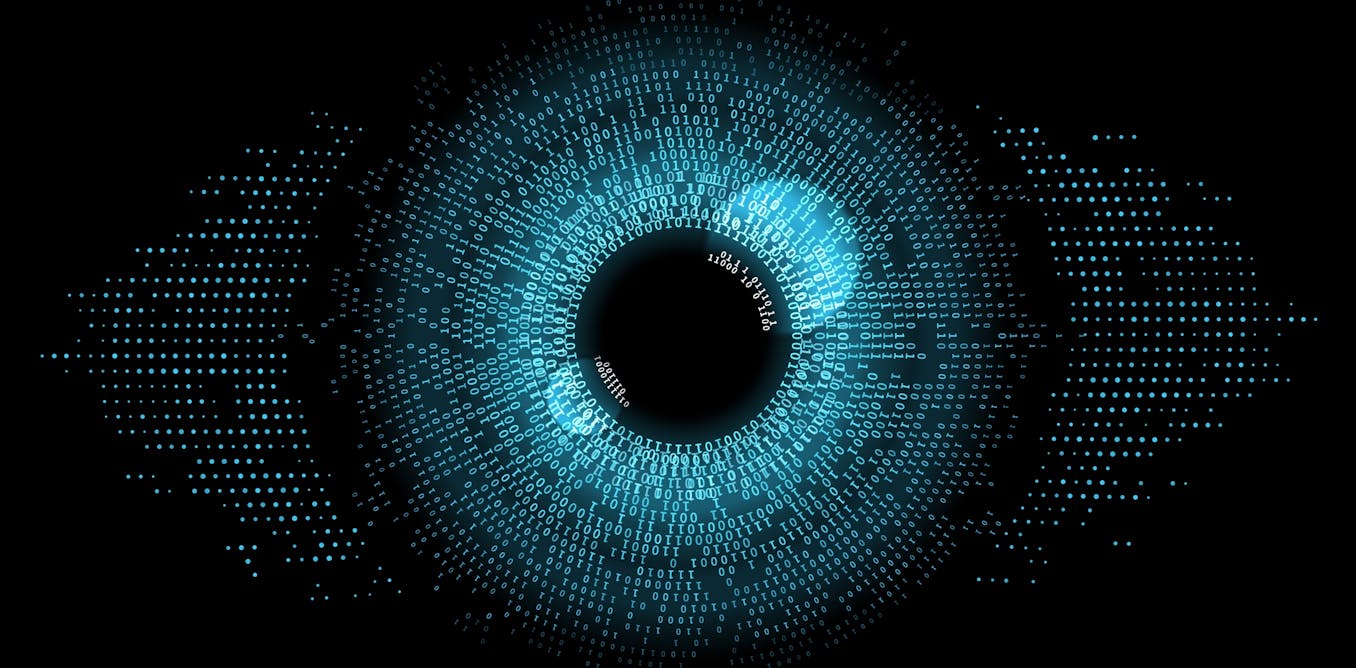Play all audios:
From self-service checkouts to public streets to stadiums – surveillance technology is everywhere. This pervasive monitoring is often justified in the name of safety and security. But our
recent study, published in Neuroscience of Consciousness, reveals a disturbing side effect. Surveillance isn’t just changing our behaviour – it’s altering how our brains process information,
operating largely outside our awareness. Our research shows that simply knowing we are being watched can unconsciously heighten our awareness of other people’s gaze. These findings have
potentially significant implications for mental health and social interaction. They also urge for a deeper consideration of how constant monitoring might shape us – not just consciously, but
also in the silent circuitry of our brains. SUBTLY AMPLIFYING AN ANCIENT SURVIVAL MECHANISM Humans have evolved the crucial ability to detect another person’s gaze to navigate social
situations. This allows us to discern friend from foe, interpret emotions and understand intentions. Surveillance may be subtly amplifying this ancient survival mechanism, placing our brains
on high alert for social cues. A total of 54 people participated in our study – all of whom were undergraduate students. They performed a visual task while being monitored by CCTV cameras.
A control group performed the same task without surveillance. Participants in both groups were shown images of faces that were either looking directly at them or away from them. Using a
method called continuous flash suppression, these faces were rendered temporarily invisible by presenting them to one eye only and with a rapidly flashing pattern (a visual mask) presented
to the other eye. The time taken for a participant to register the face under these conditions helps reveal how our brains process this information before we are even aware of it. A TARGETED
ENHANCEMENT OF OUR SOCIAL RADAR While participants in both groups detected direct-gazing faces more quickly overall, participants who knew they were being watched became hyper-aware of
these faces almost a second faster than the control group. This perceptual enhancement occurred without participants even realising. Crucially, the faster response to visual stimuli was not
observed when participants viewed neutral images like geometric configurations. This specificity to faces highlights that surveillance taps into a more fundamental neural circuit evolved for
social processing. It’s not simply a matter of increased alertness; it’s a targeted enhancement of our social radar. PROFOUND CONSEQUENCES This seemingly subtle shift in perception may have
profound consequences. A hyper-awareness of gaze is a hallmark of several mental health conditions, including social anxiety disorder and psychosis. Individuals experiencing these
conditions often feel intensely scrutinised, leading to heightened anxiety and paranoia. Our findings suggest that pervasive monitoring could exacerbate these tendencies. It could add an
unseen layer of stress to daily life and potentially contribute to broader mental health challenges. Furthermore, our study revealed a disconnect between conscious experience and the brain’s
response. Many participants reported feeling relatively unconcerned about being monitored, even though their brains clearly registered the surveillance. This disconnect underscores how
easily we normalise constant observation, accepting it as a ubiquitous feature of modern life. We rarely register the presence of cameras. Yet our brains are constantly adapting to their
presence and subtly shaping our perceptions. STRIKING A BALANCE Our findings are especially timely given recent pronouncements by tech industry leaders for more surveillance. For example,
Larry Ellison, the world’s fifth richest man and CEO of computer technology company Oracle, has pitched his vision for an always-on, AI-powered surveillance state. This vision raises serious
questions about the balance between security and personal freedom. Research has established that people tend to behave differently when they believe they are being watched. For example,
they become more generous and less likely to engage in antisocial behaviour. The findings of our new study highlight the potential unintended cost of constant monitoring: a subtle but
pervasive shift in how our brains perceive and interact with the world. The 18th century philosopher, Jeremy Bentham, proposed the Panopticon as a prison design where the mere possibility of
observation encourages self-regulation. Indeed, a large body of psychological research over the past 50 years has shown that the implied social presence rather than a true presence of an
observer is key to eliciting behavioural changes. As surveillance becomes increasingly integrated into the fabric of our lives, we must pay heed not only to its intended effects, but also
its subtle, unconscious impact on our minds and wellbeing.

